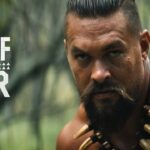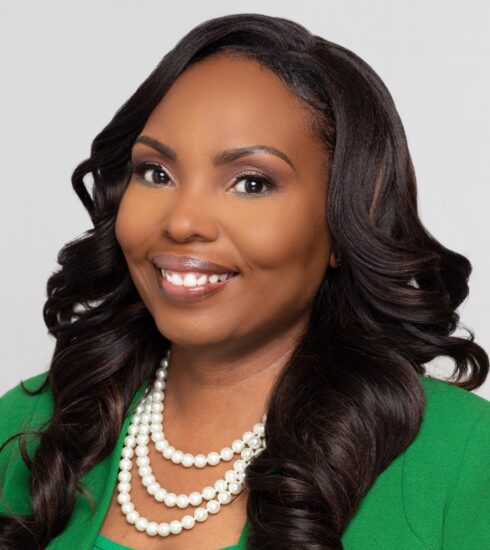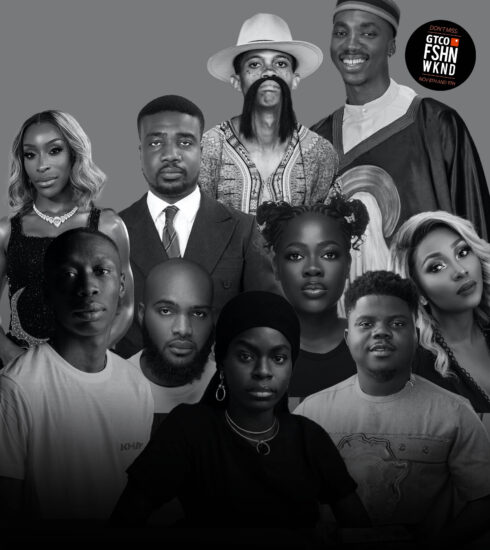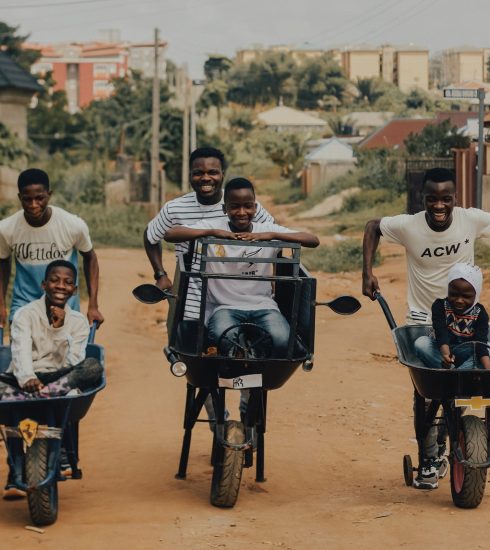Audu Maikori & Paul Okeugo: Building Africa’s Creative Empire
African creativity is one of the world’s greatest treasures. Over time, visionaries began to see that while our culture speaks for itself, global audiences often need a bridge, something that helps them understand our stories without stripping away what makes them uniquely African. By finding that balance, African talents have been able to achieve things they never thought possible: topping international charts, filling global arenas, and turning our local sounds into worldwide anthems.
Two of those visionaries are Audu Maikori and Paul Okeugo, the men behind Chocolate City. What began in 2005 as a record label has evolved into a 360-degree entertainment powerhouse that has helped propel Afrobeats worldwide. Together, they have built an empire that not only discovered and nurtured some of Africa’s biggest stars but also expanded into media, distribution, and even film through their bold Pixel Ray Studios project. This year marks Chocolate City’s 20th anniversary, a milestone made even more special by Paul Okeugo’s revelation that the company’s enduring strength comes from a simple principle, which is putting artists first. With this foundation, they have built partnerships across the globe, achieved groundbreaking results locally, and created a blueprint for Africa’s creative economy.
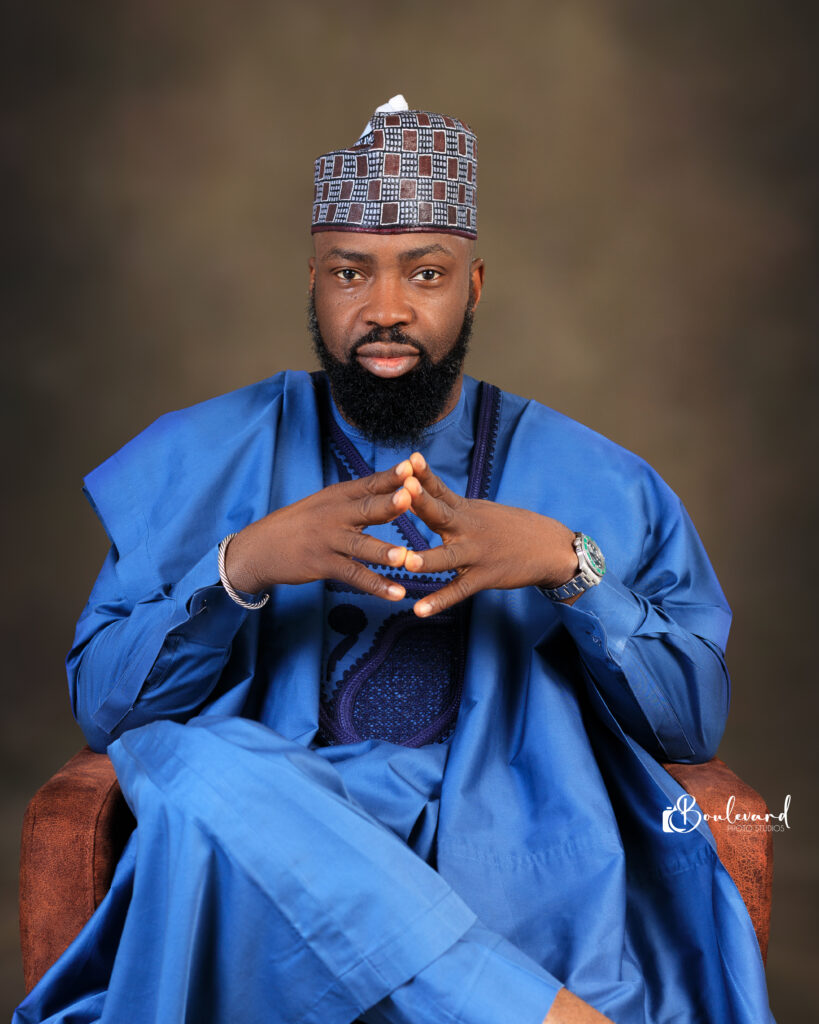
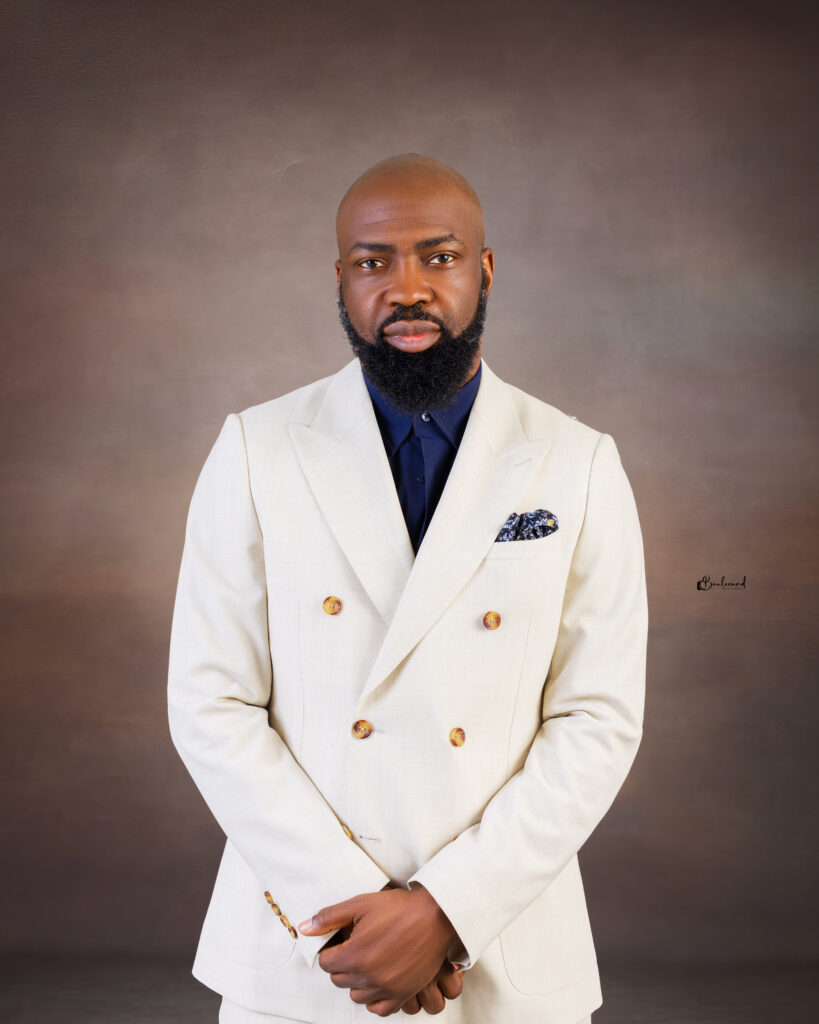
In this interview with THEWILL DOWNTOWN’s Executive Editor, Onah Nwachukwu, the Chocolate City visionaries discuss their journey, the legacy of 20 years, their ambitious plans for the future, and how they are shaping Africa’s creative story for the world to see.
AUDU MAIKORI
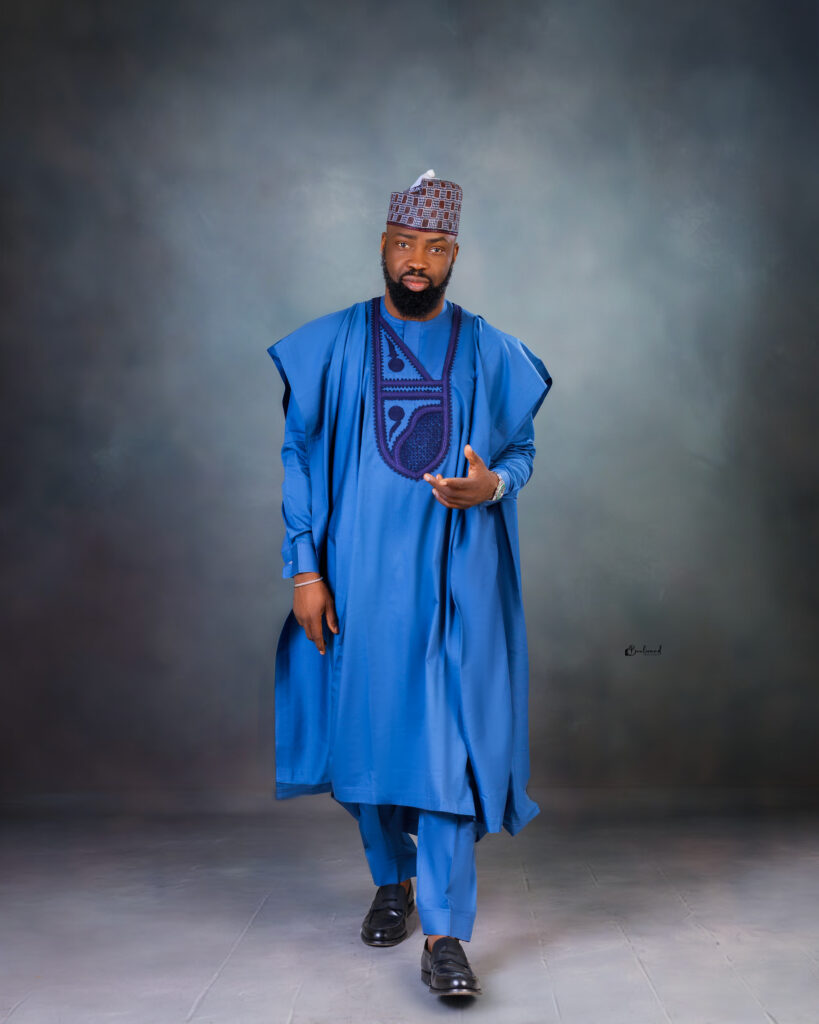
Chocolate City has been a key driver in shaping Afrobeats into a global sound. Looking back over two decades, what were the most defining moments that cemented the label’s influence, and how did you navigate the risks at those points?
The first defining moment was signing M.I. Abaga and the release of Talk About It in 2008. That album became a cultural reset, shifting the perception of Nigerian rap and Afrobeats entirely. It demonstrated that Nigerian music could be both lyrically sharp and commercially viable, and globally appealing. We knew it was risky to centre a new sound around a rapper when the market was dominated by dancehall and pop, but we backed our conviction with a strategic approach: aggressive digital marketing, nationwide tours, and building an entire narrative around artistry. The second pivotal moment was when we decided to professionalise the music business. At a time when most labels were informal collectives, we implemented contracts, royalty structures, A&R processes, and a proper label-artist value chain. This approach enabled us to attract top talent and establish long-term partnerships. The CKay moment with Love Nwantiti proved that African music, when packaged right, could travel further than anyone imagined. From Nigeria to TikTok to Billboard Hot 100. Behind that success lay years of incubation, rights management, and groundwork for digital distribution. One crucial strategy our team implemented was creating multiple versions of the song – about 10 different versions – which helped it travel globally and resonate across various markets. Our strategic partnership with Warner Music Group, through ADA, validated our market presence internationally. With scale came complexity: equity discussions, licensing negotiations, and maintaining our independence. We had to be clear on what was non-negotiable: control of our catalogue, protection of our artists, and staying rooted in our vision for African creative ownership. Every inflexion point came with risk, but we were always guided by core principles: bet early and back deep on talent, protect IP at all costs, structure before hype, and collaborate globally while negotiating locally. Chocolate City played a significant role in laying the foundation for what Afrobeats has become today.
You’ve expanded Chocolate City’s footprint into cities like Nairobi, Lagos, and Atlanta. What have been the biggest challenges and lessons in translating African creativity to resonate with global audiences without losing its authenticity?
The biggest challenge was realising that global appeal requires context rather than compromise. African creativity is powerful because it’s rooted in deep cultural truths, but global audiences often need a bridge. The lesson was to tell African stories in a way the world can understand without losing what makes them uniquely ours. In many African markets, we’ve had to build systems ourselves, including legal frameworks, digital distribution, royalty tracking, and A&R pipelines. In global cities like Atlanta, we had to educate partners on how African IP works, which often meant challenging outdated industry assumptions. Taking African talent into markets like the U.S. or Europe required blending artistic talent with business acumen. We’ve trained our artists on branding, performance standards, media handling, and deal structures. We’ve also trained global executives to understand that African creativity is diverse, dynamic, and extends far beyond any single genre. There’s constant tension between visibility and control. The global music industry often wants the product but expects to control the context. We’ve been deliberate about retaining rights, pushing for co-ownership in deals, and insisting on African voices in the room as producers, executives, and partners. Atlanta showed us the power of the African diaspora in amplifying our reach. Collaborations with African-American artists, producers, and business leaders have opened new doors because there’s shared history and cultural synergy. Strategic alliances amplify authenticity rather than erasing it.
Pixel Ray Studios is an ambitious leap into film infrastructure. What inspired you to venture beyond music, and how do you see this influencing African storytelling in the next 10 years?
Music opened our eyes to the power of African stories. We realised that Nigerian artists were creating cultural narratives that resonated globally through their music. Film was the natural extension of that realisation. The inspiration came from observing the fragmentation of our creative infrastructure. Musicians struggled to find quality video production, filmmakers couldn’t access proper post-production facilities, and everyone was working in silos. Pixel Ray was our answer to that fragmentation – a way to create convergence where our musicians become actors, our filmmakers create music videos, and our content crosses all traditional boundaries. In the next decade, I see African stories competing directly with Hollywood productions. These stories will offer something unique: authentic African perspectives with world-class technical execution. We’re positioning ourselves to be the backbone of that revolution. As global interest in African content grew, we anticipated the next wave would be content ownership across formats. That’s why we expanded into film, launched Chocolate City Media, and established Pixel Ray Studios. These were extensions of the same strategy: building platforms for African creativity, controlling IP, and driving value beyond music.
Intellectual property monetisation remains a challenge in Africa. From your experience, what practical steps should creative entrepreneurs take to protect and fully capitalise on their IP?
First, document everything. From the moment you create something, keep dated records. Register your works officially, even if the process seems bureaucratic. Second, understand your rights beyond just creation. Publishing, synchronisation, and performance rights are revenue streams that most African creators underutilise. We’ve helped our artists earn more from sync deals and licensing than from streaming in some cases. Third, think global from day one. Register your IP internationally, rather than just locally. African music is now international, so your protection needs to be global as well. Fourth, build relationships with collection societies and rights organisations. They exist to protect creators, but many artists fail to engage with them effectively. Most importantly, invest in legal counsel. It seems expensive for emerging artists, but the cost of protecting your IP appropriately is far lower than the cost of losing it. We’ve seen creators lose millions because they delayed investing in proper legal protection. The key is building systems that protect and monetise your creativity before you need them, rather than after success arrives.
Chocolate City’s recent MoUs with both the Plateau State Government and the Federal Government signal a bold move into infrastructure and talent development. How do you envision these partnerships reshaping Nigeria’s creative ecosystem, and what benchmarks will you use to measure their long-term success?
These partnerships represent a fundamental shift from private sector creativity to public-private collaboration. We’re creating a systematic approach to creative development that goes beyond individual success stories. The Plateau State partnership is particularly meaningful because that’s where Chocolate City began. Paul and I started organising raves on the University of Jos campus when we were undergraduates. Coming full circle to establish creative hubs in secondary cities like Jos, rather than just Lagos and Abuja, feels like completing the journey. The goal is to discover and develop talent where it naturally exists, rather than forcing everyone to migrate to major cities. In collaboration with the Federal Government, we’re developing policy frameworks that protect creators and generate sustainable revenue streams. This includes copyright enforcement, royalty collection systems, and international trade agreements that benefit Nigerian creators. We’re also working to provide infrastructure, such as stages, performance venues, and studios, in partnership with the private sector, to support the entire industry ecosystem. Our benchmarks are concrete: number of jobs created, revenue generated for artists, international deals facilitated, and IP revenue tracked. But the real measure of success will be whether Nigerian artists can build sustainable careers from Nigeria while serving global audiences. Long-term success means that in ten years, someone from Maiduguri can build an international creative career without ever leaving Nigeria. That’s the ecosystem we’re building for the entire creative economy.
PAUL OKEUGO
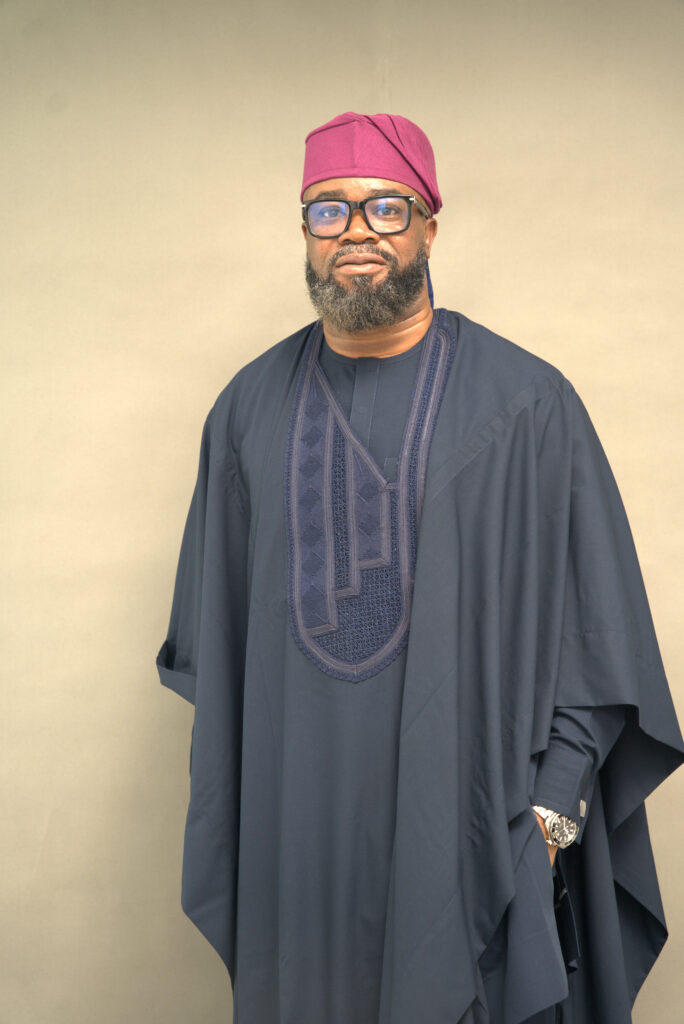
You’ve been at the heart of Chocolate City’s evolution from a record label to a 360-degree entertainment company. What was the turning point when you knew diversification was essential for survival and growth?
Diversification was always the plan. We realised very early on that being just a record label was a limitation rather than a business model. We borrowed a lot from others before us, such as Richard Branson, who started with a label and then launched other verticals. Our markets are more suited to a one-stop shop model. Without this model, artists will request services that we cannot provide, such as brand partnerships, film opportunities, and international touring support. You cannot refer them to other companies for things you should have been handling in this kind of market. We anticipated that our industry would catch up with the West in an accelerated fashion, due to the way technology has changed the music industry; streaming has transformed traditional revenue models overnight. Artists and creatives need multiple revenue streams, and labels or agencies that couldn’t provide that became irrelevant. Part of our strategy was to avoid this by future-proofing our business against these changes, ensuring we always plan with the impact of innovation in mind. Our vision was for an entertainment business that could leverage various aspects of the creative industries in Africa. Although the music business became our flagship, it remains just one aspect of the “city” that makes up “Chocolate City”. That city will also try to capture value in film, design, and creative ideation in general. We aim to build structures in Africa that leverage all the creative opportunities available in our market. The diversification is about maximising the value of the market and the relationships we’ve built. We had these incredible artists and their trust, Incredible clients looking for a connection with the creative industry, and a market teeming with talent and opportunities in all aspects of creativity. The question became: how do we create the most value for them and for us? We created Chocolate City Media (Now Bean Creative), our integrated marketing communications agency, to focus on these areas. Similar to our creation of Replete Publishing, Pixel Ray, 5iveMusic, and CC pictures. All these verticals serve to diversify the group. Mine and Audus’ job is to keep these verticals under the same vision and value matrix that we use for all our endeavours. Bean Creative has since worked with major organisations, including the Federal Government, Huawei, Pernod Ricard, Pepsi, MTN, and the Mastercard Foundation, demonstrating that our understanding of culture and creativity can serve clients beyond the music industry.
At the recent Cannes Film Festival, you spearheaded Chocolate City’s partnership with the Federal Ministry of Culture, Tourism, and Creative Economy to transform the Nigerian Film Institute. What operational vision drove this initiative, and how will you measure its success?
The partnership emerged from a simple operational reality: Nigerian filmmakers have world-class creative talent but often lack access to world-class training and industry connections. We saw an opportunity to bridge that gap through strategic partnerships, rather than relying solely on individual company initiatives. Working with Minister Hannatu Musawa and her team, we designed a comprehensive framework to update, upskill, and upscale the Nigerian Film Institute. This involves curriculum development, international faculty exchanges, equipment upgrades, and direct industry placement programs. My role was to structure the operational framework that ensures the sustainability of this partnership. We created systems for ongoing collaboration with international streaming giants, established clear metrics for student success, built pathways for graduates to access industry opportunities immediately, and most importantly, ensured continuity of that entire ecosystem so it doesn’t run down and become obsolete again. This is the power of the partnership. The operational vision is to create a pipeline that provides Nigerian filmmakers with training and tools that meet international standards and to upskill and ramp up even the unskilled labour and make Nigeria a more attractive destination for global film production, and not just a local market trying to export film and culture(which we are already doing quite well). Success will be measured through graduate placement rates in major productions, international collaborations secured, and the quality of content produced by institute alumni. We expect the process for students there to be practical and based on real films. We’re also tracking systemic change: Other African countries adopt similar models. International partners need to view Nigerian creative education as meeting global standards. When our graduates are competing for the same opportunities as film school graduates from anywhere in the world, we’ll know the system is working. And of course, better films mean better proceeds for our market as a whole.
The $1 million empowerment fund announced for the 20th anniversary is a bold commitment. What specific areas in the creative sector will this fund target, and how will beneficiaries be selected to ensure maximum impact?
The Founders Fund Africa is our structured accelerator designed to empower the next generation of creative entrepreneurs. We’re focusing on early-stage startups in Nigeria’s creative sectors, offering financial support, mentorship, and strategic industry connections to help founders start, scale, and sustain their businesses. We see a lot of big funds around, but young people who started like us hardly have access to these funds because the barriers to entry are high. It was the same for us; sometimes you don’t need millions of dollars to start, you just need that little push. Our founders fund, in partnership with Argentil Capital and CC Hub, will provide that push. It is a small fund to start, but it will grow. We have partnered with Argentil because we wanted the best people managing the finance part of this, while CChub supports us on the incubator side. We’re targeting five key areas: gamification startups creating interactive entertainment experiences, payment platforms that help creators monetise their work, digital tools for content distribution and audience engagement, creative technology that merges AI with artistic expression, and businesses focused on talent management and artist development. This is about building the infrastructure for creative entrepreneurship. Many talented individuals have innovative ideas, but they often lack the business framework to turn them into sustainable ventures. Beneficiary selection prioritises scalable business models alongside creative talent. We want entrepreneurs who understand both the creative and commercial sides of their ventures. We’re particularly committed to addressing gender imbalances in the creative industries and creating access for young people who have traditionally been excluded from the system. The application process will be rigorous but supportive. We will evaluate business plans, market potential, and the founder’s commitment to building something that lasts beyond initial success.
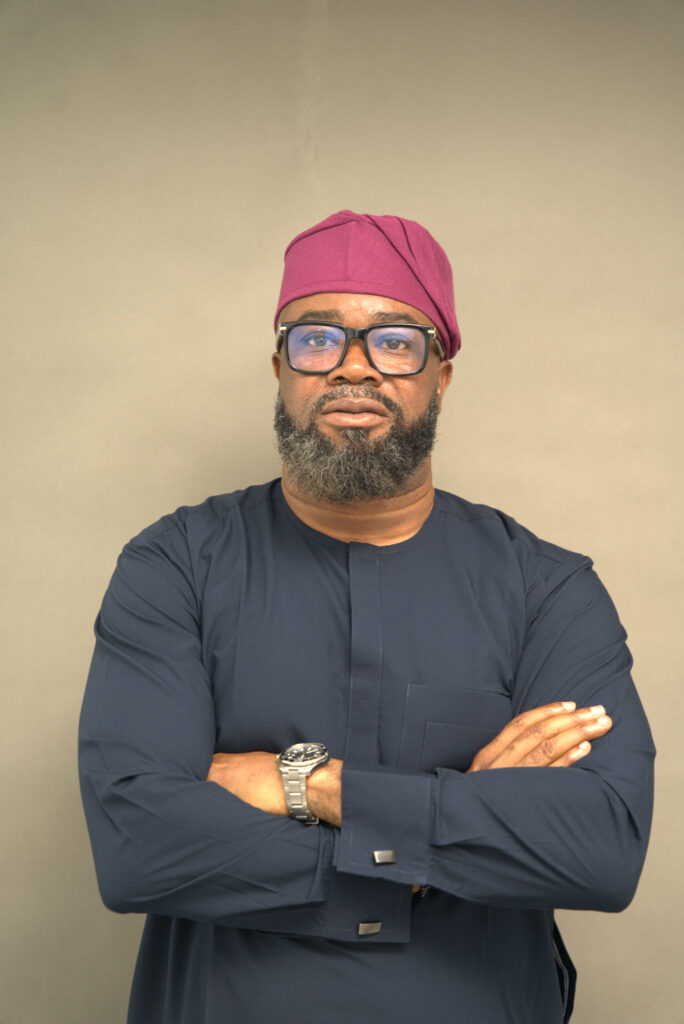
Two decades is a lifetime in entertainment. What values or operational principles have kept Chocolate City relevant in such a fast-changing industry?
The foundation has always been putting our artists first. Every major decision we make, we ask ourselves: “Does this serve our artists’ long-term interests?” That principle has guided us through industry changes, technology shifts, and market disruptions. We never tried to be American or European. From day one, we focused on being the best African entertainment company we could be. That authenticity has become our biggest competitive advantage. When everyone else was chasing international sounds, we doubled down on African excellence. There’s also been a deliberate focus on building long-term relationships rather than chasing short-term profits. We’ve turned down lucrative deals that would have compromised our artists’ futures. That approach has created loyalty and trust that competitors can’t replicate. The entertainment industry rewards those who can learn fast and adapt faster. We invest heavily in understanding new technologies, market trends, and cultural shifts. But we’ve always maintained our core principle: quality over quantity. We’d rather work with a smaller number of artists and deliver excellent work than spread ourselves too thin by trying to sign everyone. At its heart, Chocolate City is a family, not just a company. That culture has attracted the best talent and created lasting relationships that go beyond contracts.
While others talk strategy, you execute it. Looking ahead, what operational systems and infrastructure are you building that will fundamentally change how African creative businesses function?
We’re building integrated platforms that handle everything from talent discovery to global distribution. Most African creative companies still operate in silos: labels, publishers, distributors, and managers working separately. We’re creating unified systems where all these functions communicate seamlessly. The Founders Fund Africa is the testing ground for this approach. Instead of just funding startups, we’re building shared infrastructure they can all use: legal templates, international distribution networks, and business intelligence systems. When a creative startup joins our accelerator, they plug into 20 years of operational expertise. Our partnership with the Federal Ministry of Culture is about building national creative infrastructure. We’re working on standardised contracts, unified royalty collection, and international trade frameworks that every Nigerian creative business can use. Think of it as creating the operating system for the entire creative economy. The partnerships we signed at Cannes are part of a larger operational vision: creating direct pathways for African content to reach global audiences without losing value to intermediaries. We’re building the infrastructure, not just the content. My benchmarks are operational rather than just financial. Success means Nigerian creative businesses can scale internationally without having to rebuild their basic infrastructure. It means an artist in Kano can access the same quality of contracts and distribution as someone in Lagos. It means creative entrepreneurs can focus on creativity while the business infrastructure runs automatically. The real benchmark: when other African countries start adopting our systems and frameworks. When Ghana, Kenya, and South Africa look to Nigerian creative infrastructure as the model, that’s when we’ll know we’ve succeeded.
A lawyer by training, Onah packs over a decade of experience in both editorial and managerial capacities.
Nwachukwu began her career at THISDAY Style before her appointment as Editor of HELLO! NIGERIA, the sole African franchise of the international magazine, HELLO!
Thereafter, she served as Group Editor-in-Chief at TrueTales Publications, publishers of Complete Fashion, HINTS, HELLO! NIGERIA and Beauty Box.
Onah has interviewed among others, Forbes’ richest black woman in the world, Folorunso Alakija, seven-time grand slam tennis champion, Roger Federer, singer Miley Cyrus, Ex Governor of Akwa Ibom State, Godswill Akpabio while coordinating interviews with Nigerian football legend, Jayjay Okocha, and many more.
In the past, she organised a few publicity projects for the Italian Consulate, Lagos, Nigeria under one time Consul General, Stefano De Leo. Some other brands under her portfolio during her time as a Publicity Consultant include international brands in Nigeria such as Grey Goose, Martini, Escudo Rojo, Chivas, Martell Absolut Elix, and Absolut Vodka.
Onah currently works as the Editor of TheWill DOWNTOWN.


